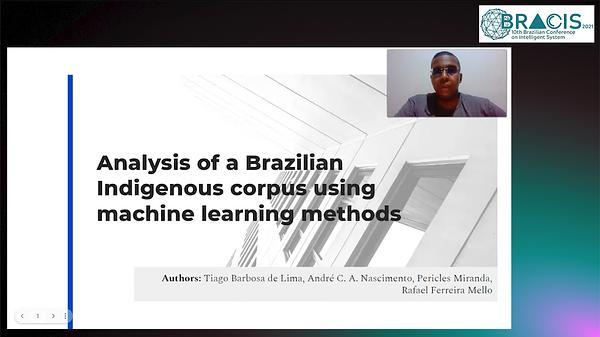Would you like to see your presentation here, made available to a global audience of researchers?
Add your own presentation or have us affordably record your next conference.
keywords:
guatemala
global health
indigenous
The COVID-19 pandemic once again confronts us with the reality that health and illness are not neutral conditions but rather are produced through various institutions at multiple levels. Such productions happen locally and transnationally. The Coronavirus’ impact in Central American communities illustrates both of these points. In the United States, Central American migrants have been significantly affected due to residence in regional coronavirus hotspots (including California and New England) as well as their employment in high-risk sectors (including meat processing and restaurant work). In Central America, state responses to the pandemic have further marginalized already vulnerable populations. This roundtable explores the implications of anthropological truths and responsibilities in a variety of spaces, including the United States, Guatemala, and the virtual world of social media. Participants bring with them clinical and (auto)ethnographic insights. In the United States, we examine how undocumented status contributes to health inequities, interrogating how migration continues to be a key determinant of health (Castañeda et al. 2015; Holmes 2013; Kandula, Kersey, and Lurie 2004). In transnational, and often virtual spaces, we explore how Central American migrants use information communication technologies (ICTs) to not only communicate with family, but also help identify migrant acquaintances who are sick or have died. These uncomfortable realities and the unprecedented scale of the pandemic facilitate shifting and multiple truths that circulate locally and transnationally. Examination of social distancing practices, location of health services, vaccine availability, and press coverage in Guatemala demonstrate that Indigenous communities often bear the greatest burden. Using insights from both clinical and ethnographic perspectives, we examine the creative strategies that allow individuals, communities, and nongovernmental organizations to find new spaces for resilience. For example, we examine how community health workers use creative workarounds to continue to provide care despite the pandemic and we consider how families have recovered from quarantine, discrimination, disease, and loss in the aftermath of contagion. Finally, the roundtable examines anthropology’s role in the maintenance of “healthy” communities. Central America has long been the focus of the anthropological gaze. Early fascination with Mesoamerica’s ancient Maya and their living descendants helped to solidify a nascent academic discipline. Investigations of Central America continue to proliferate in the four academic sub-disciplines and their applied counterparts. This has prompted some to comment that the region has suffered from colonialism, anthropological attention (Wantanabe 1995), and increasingly the intervention of nongovernmental organizations and short-term medical missions (Berry 2014; Rohloff, Kraemer Díaz, and Dasgupta 2011). The connection between the United States and Central America continues to capture the imagination, but anthropologists are, more than ever, tasked with the responsibility to produce pragmatic and accessible knowledge. Our examination of the novel Coronavirus in Central American communities interrogates anthropology’s responsibility to the communities with whom it collaborates. How can we conduct ethnographic research that protects communities during the Coronavirus pandemic? How can we produce knowledge that will reduce stigma and inform equitable health initiatives?

